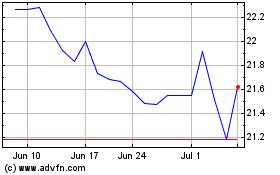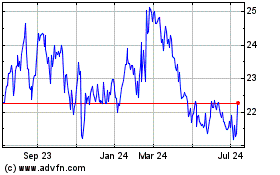World-Class Spend Less & Rely on Fewer
Staff While Driving Higher Levels of Effectiveness, Agility and
Insight
World-class finance organizations now spend 42 percent less than
typical companies and use 44 percent fewer staff, while at the same
time driving higher levels of effectiveness, agility, and insight,
according to the newly-released 2016 analysis of finance benchmarks
from The Hackett Group, Inc. (NASDAQ: HCKT). The research
quantifies the performance advantage of world class compared with
typical finance organizations. For a typical company with $10
billion in revenue, attaining world-class performance represents as
much as $40 million in potential savings annually.
The research finds that digital business transformation is one
of five initiatives key to achieving world-class performance.
Digital technology is creating new opportunities to transform
finance service delivery, and world-class finance organizations
focus greater resources in this area. World-class finance
organizations also enable analytics-based decision making to
generate insights that improve enterprise agility.
A public version of the research is available on a complimentary
basis, with registration, at this link: http://bit.ly/29t7K8J.
World-class finance organizations are those that achieve
top-quartile performance in both efficiency and effectiveness
across an array of weighted metrics in The Hackett Group’s
comprehensive finance benchmark.
The Hackett Group’s research identifies a total of five
strategies that world-class finance organizations use to achieve
superior results: embrace digital transformation; enable
analytics-based decision making; reallocate resources from
transactional focus to value added; adopt customer-centric service
design and delivery; and reskill the finance function. Here are
more details on each strategy:
Embrace Digital Transformation -
Cloud-based infrastructure and applications, virtual business and
technology networks, robotic process automation, and business
analytics are coming together with rapidly transitioning employee
and consumer bases that are increasingly adept with new mobile
technologies and business models. This convergence is creating
tremendous new opportunities for finance organizations to apply
digital technologies to transform service delivery. The Hackett
Group’s research shows that more than 70 percent of all finance
organizations are planning major transformation, but most finance
organizations have made only minimal investments to date in cloud
technologies, and even less in robotic process automation, mobile,
and other digital technologies. Overall, world-class companies have
done more to automate basic transactions and finance processes
across the board, which can drive an array of benefits, such as
lower cost for customer invoices, fewer errors, shorter time to
bill, and better cash flow. Automating customer invoicing, for
example, reduces cost by 76 percent, leads to nearly 40 percent
fewer errors, and results in 44 percent shorter time to bill.
According to The Hackett Group Finance
Transformation Principal Richard Cardillo, “It’s critical for
finance organizations to explore digital transformation
opportunities to drive a more agile platform, greater cost
reduction, and improved customer experience. To succeed, finance
leaders must embrace new technologies such as improved analytics
enabled by big data, mobility, the cloud, and advanced process
automation tools. They must investigate and deploy pilot programs
so they can better understand how to scale solutions and realize
the long-term benefits promised by these technologies.
“Robotic process automation is a particularly
interesting area that is rapidly evolving with a variety of players
developing tools – some of which are competitive and others which
are complementary. Operationalizing robotics it is not about
adopting a single solution, or evolving from structured to
cognitive processing. Rather it’s about applying the appropriate
toolset to drive the maximum value depending on the issue at hand,”
explained Mr. Cardillo.
“Some leading-edge companies have begun to
explore the potential for robotic systems that can respond to basic
inquiries in areas like payables and receivables,” said Mr.
Cardillo. “Others are starting to look at robotics for call center
interactions such as insurance quotes and credit card inquiries.
These solutions have companies asking whether off-shoring
transaction processing tasks to gain the labor arbitrage benefit is
really necessary.”
Enable Analytics-Based Decision Making
– Advanced information management is key to enterprise agility.
What’s required is a “sensory” system that monitors external
conditions and analytical capabilities that comprehend this data
within the business context. World-class finance organizations have
a sophisticated information/data architecture that makes effective
data analysis possible; planning and analysis capability that is
dynamic and information driven; and performance measurement that is
aligned with the business. As just one example, at world-class
finance organizations operations managers are more than 4 times
more likely to use an online budgeting system (14 percent vs. 60
percent), enabling everyone to work from one set of data and
facilitating a shift from building budgets to analysis and judgment
based on the data. But there is dramatic room for improvement. A
total of 56 percent of all companies still use spreadsheets and
customized applications for planning and forecasting, and analysts
spend more than half of their time compiling data, leaving less
time for analysis and business advice.
Reallocate Resources from Transactional
Focus to Value Adding – By leveraging a formal service delivery
model, generally including a global business services or shared
services facility or center of excellence, world-class finance
organizations are able to shift their focus from transactional work
to higher-value activities, such as analytics, measurement, and
supporting business strategy in ways that drive business results.
Despite having much smaller staffs, world-class finance
organizations dedicate a much larger percentage of their overall
staff (36 percent versus 26 percent) to planning and performance
management than typical companies and a much smaller percentage (49
percent versus 60 percent) to transactional work.
Adopt Customer-Centric Service Design and
Delivery - Understanding and managing the customer experience
requires a holistic, structured approach, starting with a clear
understanding of customers’ needs and then improving relevant
elements of the finance service delivery model. A key part of that
focus should include educating those customers about the tradeoffs
inherent in different service levels and non-standard offerings.
World-class organizations are service oriented and customer focused
in their approaches to finance delivery.
Re-Skill the Finance Function - One of
the biggest challenges facing finance organizations is aligning the
competencies and skills of finance talent with the needs of the
business. Top management looks to finance to help the business
execute strategies more successfully and to implement the
organizational changes needed to become more agile and innovative.
This means moving beyond technical accounting and data skills to
establish broad leadership and business acumen capabilities
throughout the finance organization. World-class finance
organizations demonstrate this by having nearly 50 percent more
staff per manager than typical companies, offering greater autonomy
for individual decision-making and fewer layers in the
organization.
“Getting to world-class is a real challenge for even the most
agile finance organizations. But the benefits are tangible,” said
The Hackett Group’s Global Practice Leader of GBS and Finance
Advisory Programs Jim O’Connor. “To jump start their journey,
finance leaders can take steps like measuring baseline efficiency
and effectiveness levels to gauge performance and test their
service delivery model. They can document and evaluate the customer
value they create, and find ways to reduce complexity. They can
explore digital opportunities for more agile platforms and cost
reduction. And finally they can adopt a service delivery model that
enhances finance’s alignment with business objectives.”
The Hackett Group’s World-Class Finance Performance Advantage
Research is based on an analysis of results from recent benchmarks,
performance studies, and advisory and transformation engagements at
hundreds of large global companies.
About The Hackett Group
The Hackett Group (NASDAQ: HCKT) is an intellectual
property-based strategic consultancy and leading
enterprise benchmarking and best practices implementation
firm to global companies. Services include business
transformation, enterprise performance
management, working capital management, and global
business services. The Hackett Group also provides dedicated
expertise in business strategy, operations, finance, human capital
management, strategic sourcing, procurement, and information
technology, including its award-winning Oracle EPM and SAP
practices.
The Hackett Group has completed more than 11,000 benchmarking
studies with major corporations and government agencies, including
93% of the Dow Jones Industrials, 86% of the Fortune 100, 87% of
the DAX 30 and 52% of the FTSE 100. These studies drive its Best
Practice Intelligence Center™ which includes the firm's
benchmarking metrics, best practices repository, and best practice
configuration guides and process flows, which enable The Hackett
Group’s clients and partners to achieve world-class
performance.
More information on The Hackett Group is available at:
www.thehackettgroup.com, info@thehackettgroup.com, or by calling
(770) 225-3600.
View source
version on businesswire.com: http://www.businesswire.com/news/home/20160915005173/en/
The Hackett GroupGary Baker, 917-796-2391Global Communications
Directorgbaker@thehackettgroup.com
Hackett (NASDAQ:HCKT)
Historical Stock Chart
From Mar 2024 to Apr 2024

Hackett (NASDAQ:HCKT)
Historical Stock Chart
From Apr 2023 to Apr 2024
